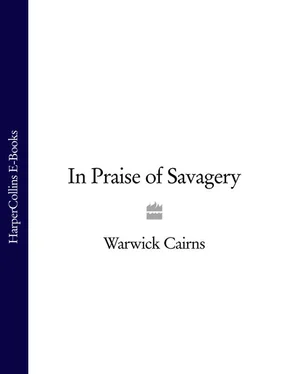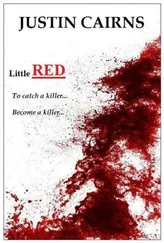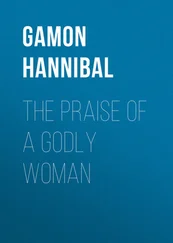Not just in Harlow, either, but all over the place.
In 1948—a year after Harlow got going—a professor by the name of B. F. Skinner, the most influential psychologist of his generation, published a book called Walden Two , a utopian volume which described the wonderful life lived by the inhabitants of the ultimate ‘planned community’, a perfect town of a thousand happy, productive and creative people governed by a handful of properly qualified managers and planners, acting on the impartial advice of a small number of scientists. It was a place in which people no longer ate meals at home with their families but dined, instead, in communal canteens, not least because the ratio of volume to surface area of a large cooking-pot is more energy-efficient than that of a smaller one. Clothes no longer denoted status, since status, like poverty and violence, no longer existed—although the people did dress attractively in items carefully and strategically chosen to be beyond the fast-changing vagaries of fashion, which is a bad thing because it ‘makes perfectly good clothes worthless’ long before they are worn out. And women in this ideal community most certainly did not fill up their wardrobes with party-dresses, since these things were quite clearly impractical. The world, Skinner suggested, could be this way, and people could be this way, with just a little effort from all of us and just a little expert guidance from the likes of him. We could all be this way.
To return to the house, though. I’d had a bit of trouble finding it.
This was because Winchester, or Gatefield, or whatever it was called, wasn’t an old-style linear road such as you’d find in an old-style town. It was more of an area, a zone, and it contained a tree-shaped collection of cul-de-sacs, in which all the branches had the same name. So you’d be in it, looking for the house-number, and there’d be other roads branching off to the right and the left, and they’d all have road-signs, and those road-signs would all say exactly the same thing. They were all the same place.
This was modern; confusing, but modern nevertheless.
I found it in the end. In the end, we all found it. There were, I’d say, about twenty of us who turned up there, all crammed into the living-room, sitting four or five to the three-seater sofa, plus one perched on either arm, and three to each armchair, and attempting to drink our tea and eat our Rich Tea biscuits and make conversation with our elbows comprehensively pinned into our sides in the crush, like the arms of Irish dancers.
It was to be a talk arranged by the local organiser of a charity that sent young men and women to far-flung places around the world, to do community work with the local people, and also to have adventures. The leaflet had said that they would be having a famous explorer there to give the talk, although I had not heard of the man before, and neither had the people on either side of me. But we were all up for a bit of adventure in exotic lands, though.
And in he came, tall and upright and dressed in his thick tweed suit and his stout brown shoes, and when he spoke, with his pre-war Etonian drawl, it silenced the room.
‘In the past fifty years,’ he said, ‘we have wiped out the inheritance of the previous 500.’
This was an odd way to start, but then again he had spent the day in Harlow New Town, so perhaps it was to be expected.
‘When I was about your age,’ he said, looking at us all sitting there before him, looking at the shelves of china and crystal knick-knacks by the faux-mahogany television cabinet, looking at the red plastic Trimphone on the round-edged laminated-teak sideboard, ‘when I was about your age, what I wanted, above everything else, was to be an explorer.’
The top-hatted doorman stood to one side, allowing the young man in the tweed suit to pass through the double revolving doors of the new hotel into the hush of the marble hall, leaving behind all of the sounds of Park Lane, the motor-cars, the taxis, the electric trams, the midday crowds on the pavements.
At the far side of the hall was a great burr-mahogany desk, bound at the corners with beaten copper bands fastened with brass studs, and topped with polished slate, and behind it sat a tall bald man in a tailcoat and gold-braided waistcoat, dipping his pen-nib into a square cut-crystal inkwell as he wrote on the heavy cream-coloured pages of a green leather-covered ledger.
The young man glanced briefly back towards where he had come, and saw the taxi passing back out into the traffic. The square-faced clock between the doors said twenty to three. He was twenty minutes early; but then, everything was riding on this meeting. He crossed the hall, hearing the sound of his own footsteps on the polished floor.
The man at the desk looked up.
‘Mr Thesiger?’ he said. ‘You are expected. One moment.’
He picked up a small bell and shook it.
Instantly, a second man appeared by his side, as if from nowhere.
‘If you would be so kind as to follow me, sir,’ said the man.
He led the young man through the hotel, past the open doors through which could be seen the vast pillarless ballroom, and to a secluded table in the restaurant beyond, where two places had been laid and where two waiters stood, each with a starched napkin over his forearm.
They brought the young man tea, and a silver tiered stand of cucumber sandwiches and small pastries.
He took some tea, but did not touch the food. He took the fob-watch from his waistcoat pocket, and turned it over in his fingers, and then put it back again. The walls and coffered ceilings were white and gold, as were the fish-scale-patterned Egyptian pillars. The pale carpet was intricately woven in a chinoiserie style.
He consulted his watch again. Still almost twenty minutes left to wait.
He had, by now, made the decision to go.
He would, he had decided, cross the desert to Aussa, and he would enter the Sultan’s kingdom and pass through, and he would follow the river along all the length of its unmarked, unknown course until he came to the end and solved the mystery. On this he was determined.
He had made arrangements and plans, and had obtained the blessing and sponsorship of the Royal Geographical Society, and gained further funds for food and equipment, medicines and wages for his party from Magdalen College and from the Linnean Society.
But at this time the Sultanate of Aussa lay, nominally, within the borders of Abyssinia, and obtaining the permission of the Abyssinian Government was proving considerably more difficult than he had bargained for.
His initial requests had been met with a flat refusal; and although he was not without connections there, although his late father had been British Minister at the court of the former Emperor Menelik, although he himself had received a personal invitation to attend the coronation of Haile Selassie, these things seemed to have got him nowhere.
And then came the message from the Embassy.
The waiter came, to see if fresh tea was required. It was not.
The young man felt his watch-chain again, and half-pulled his watch from its pocket, but then pushed it back, and instead studied the scalloped pattern on the back of his teaspoon.
Time. How we measure it out. How it feels, the passing of it. How what was is transformed utterly into what is, and which even in the moment of perceiving has vanished into what is to come, and so on for ever and always. How the wood that made the table at which he sat had grown, for however many years, in some far-flung forest, and the ragged trailing creepers overhanging, and the piercing call of brightly plumed birds. This same thing.
His father. The presence of him, the fact of him, as solid and real as anything in this life, and now gone, long, long gone: dead and buried these what—thirteen years? One wonders how this can be so.
Читать дальше












